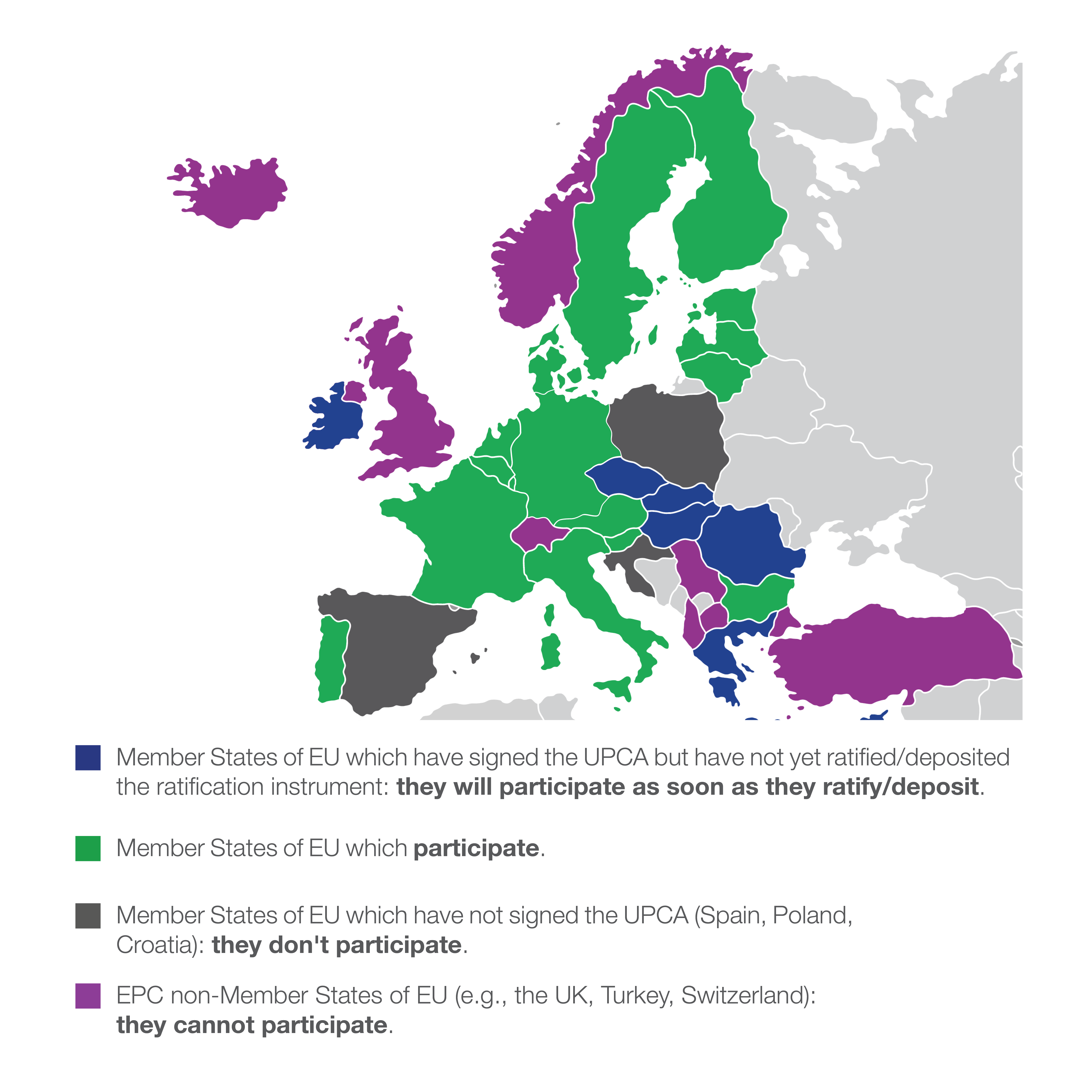The most significant change to European patent law in the past 50 years came into effect in June 2023. The long-awaited Unified Patent Court (UPC) and Unitary Patent (UP) will significantly change the European patent landscape and should be at the top of your IP strategy agenda.
Which countries are impacted?
The UPC and UP impact all UP/UPC Member States to varying degrees. They are in full effect in the 17 EU Member States that have both signed and ratified the UPC agreement. There are seven more EU Member States that have signed the agreement but have yet to ratify it. So far, Spain, Poland and Croatia do not participate. Other countries in the European patent landscape such as the UK, Norway and Switzerland, cannot participate as they are not EU Member States.

What is the Unified Patent Court?
The UPC is a new court that rules on European patents for all UP/UPC Member States. Within this new court, parties are able to enforce patent rights across all participating Member States in a single enforcement action, and patent owners can seek cross-border injunctions and damages for the first time in Europe.
The UPC intends to be faster than Member States’ national courts and to be more cost-efficient than multiple national proceedings as parties only pay one court fee and one set of legal costs.
The UPC is established as a central patent court (with central, regional, and local divisions). It has exclusive jurisdiction over all UPs and over classic European patents that have not yet been opted out of the system (subject to jurisdiction rules between the UPC and national courts).
What is a Unitary Patent?
Unitary Patent or UP is a shortened version of “European Patent with Unitary Effect.” A UP provides a single patent right covering all participating UP/UPC Member States. Thus, the UP makes it possible to get patent protection across all UP/UPC Member States with a single validation process and a single set of annuities.
The unitary effect is only available for European patent applications for which a grant date has been specified and for European patents during their first month post-grant. After that, the patent can only go through a classic validation process.
Further, the unitary effect is only available to UP/UPC Member States at the time that unitary effect is registered. For Member States of the European Patent Convention that are not UP/UPC Member States, only the classic validation process remains available.
What should companies do to prepare?
It is crucial that all companies operating and/or seeking patent protection in Europe understand the impact of this new system and factor it into any existing or new patent strategies they may be developing for their European operations. Patent owners should, at a minimum, consider the following:
- Whether to seek a unitary effect for their soon-to-be-granted European patents.
- Whether to opt-out their existing “classic” European patents from the UPC system during the transitional period.
- Review existing agreements that involve European patents.
- Adapt their patent filing strategy in Europe accordingly.
- Review whether competitors may enforce European patents in Europe.
Reed Smith’s European patent litigators and patent lawyers have the qualifications to represent clients before the UPC. Our team has been staying abreast of all the latest developments and can assist clients in planning their UPC patent strategy.

